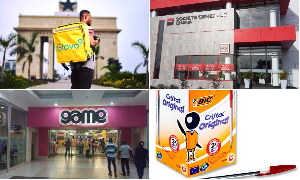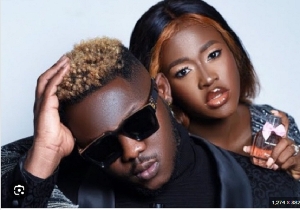- Home - News
- TWI News | TV
- Polls
- Year In Review
- News Archive
- Crime & Punishment
- Politics
- Regional
- Editorial
- Health
- Ghanaians Abroad
- Tabloid
- Africa
- Religion
- Election 2020
- Coronavirus
- News Videos | TV
- Photo Archives
- News Headlines
- Press Release
General News of Thursday, 7 December 2000
Source: Associated Press
Ghana Votes for a New President
Determined to see democracy succeed, long lines of jostling voters formed in the sweltering heat Thursday in elections that marked the end of the rule of Ghana's longest-serving president.
In a region where democratic elections remain a rarity - and where few heads of state willingly cede power - many Ghanaian voters said they believed the vote to choose a successor to President Jerry Rawlings would be a success.
``This time round there is going to be a change,'' said Frank Kyere, a student who lined up with about 200 people to cast his ballot at the University of Ghana campus in Accra. ``It's a great feeling.''
For two decades, Rawlings, a charismatic ex-fighter pilot, has been the public face of this West African nation. He staged two coups, the first in 1979, and led a brutal military government before embracing democratic ideals in the 1990s. He is constitutionally barred from seeking another four-year term.
He thrust his fist in the air as he emerged from his Accra home to cast his ballot - surrounded by cheering supporters.
``Quite frankly, it is a bit of a relief to be stepping down, though I see a lot of work ahead of us,'' Rawlings said. ``I believe the legacy I have left behind is ... a new sense of confidence our people have in their right to participate and their right to decide.''
With Rawlings out of the contest, opposition parties hoped to wrest power from the ruling National Democratic Congress. Rawlings' vice president and hoped-for successor, John Atta Mills, was competing against six candidates. The most prominent was John Agyekum Kuffuor, a British-trained lawyer who came in second in presidential elections four years ago.
Kuffuor commended the country's national electoral commission - one of the few in Africa considered genuinely independent - for ``doing its best.''
Kuffuor has campaigned on a platform of ``positive change,'' arguing that power has remained too long in the hands of a regime that, despite its popularity, also faces regular accusations of corruption and human rights abuses.
Mills said he was ``extremely confident'' of victory. ``I think we have done all that we can to build a good democracy, and now it is the responsibility of all to build on it,'' Mills said as he displayed his ballot to a crowd of cheering supporters, taking a bow before placing it in the ballot box.
Mills' chances have been hurt by a sharp economic decline. Ghana's economy, thriving just a few years ago, has been hit in recent years by plummeting international prices for the its major exports, cocoa and gold, and by oil price hikes. The national currency, the cedi, has depreciated by over 50 percent in the past year.
Observers said none of the candidates were likely to win the 50 percent of the vote required for an outright win, and a second round of balloting was likely.
Nearly 11 million voters were registered for Thursday's poll, in which representatives to the country's 200-seat parliament were also being selected.
Campaigning was marred by scattered clashes in which at least one person was killed.
State-run radio reported a high voter turnout across the country, with only minor irregularities. At a polling station in Accra, a man armed with a pistol held up voting for an hour before police arrested him, Joy FM radio reported.
Ghana has been ruled by five military regimes since achieving independence from Britain in 1957, but has evolved under Rawlings, blossoming into a multiparty democracy with a flourishing independent press.
Rawlings is to hand over power on Jan. 7.










